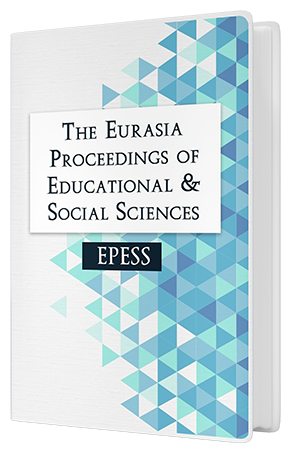Science Literacy for Citizenship: Bridging the Gap. A Delphi Study of Arab and Lebanese Experts
Keywords:
Citizenship education, Science literacy, Delphi study, Active citizen, Global citizenAbstract
The purpose of the present two-stage Delphi study is to examine how Arab and Lebanese Educators view the relationship of the Science Literacy and Citizenship concepts. It is known that students’ 21st century science skills needed are used for being an active and responsible citizen. Many of the academics involved in the research were the Arab and Lebanese Experts who participated in the three-day conference about citizenship in 2014, organized by the Faculty of Education, Lebanese University. A first round survey was carried out, and a questionnaire on Citizenship and Science Literacy was administered via e-mail and returned by 28 experts in Education to Science Education at the Faculties of Education at Arab universities. Experts’ responses were coded and categorized according to: students’ citizenship skills, students’ scientific literacy skills, educational challenges in terms of schools and society, curriculum development, teacher preparation, and the values of a good, digital and global citizen. In the second round survey, experts were again asked to comment on the depicted themes. Experts’ opinions complemented each other and there were no controversies. All stressed on the diversity and the respect of the other. They all concurred that in order to live in an open society where all are respected one needs to discard and reject any type of discrimination and fanaticism. This research would contribute in: a) making a repertoire of citizenship skills by Arab and Lebanese experts, b) improving the quality of the science courses that tackle the concepts of science literacy and citizenship education at the Faculty of Education, and c) upgrading the in-service training programs that nurture the same concepts.Downloads
Published
Issue
Section
License
Copyright (c) 2018 The Eurasia Proceedings of Educational and Social Sciences

This work is licensed under a Creative Commons Attribution-NonCommercial-ShareAlike 4.0 International License.
The articles may be used for research, teaching, and private study purposes. Any substantial or systematic reproduction, redistribution, reselling, loan, sub-licensing, systematic supply, or distribution in any form to anyone is expressly forbidden. Authors alone are responsible for the contents of their articles. The journal owns the copyright of the articles. The publisher shall not be liable for any loss, actions, claims, proceedings, demand, or costs or damages whatsoever or howsoever caused arising directly or indirectly in connection with or arising out of the use of the research material. All authors are requested to disclose any actual or potential conflict of interest including any financial, personal or other relationships with other people or organizations regarding the submitted work.




